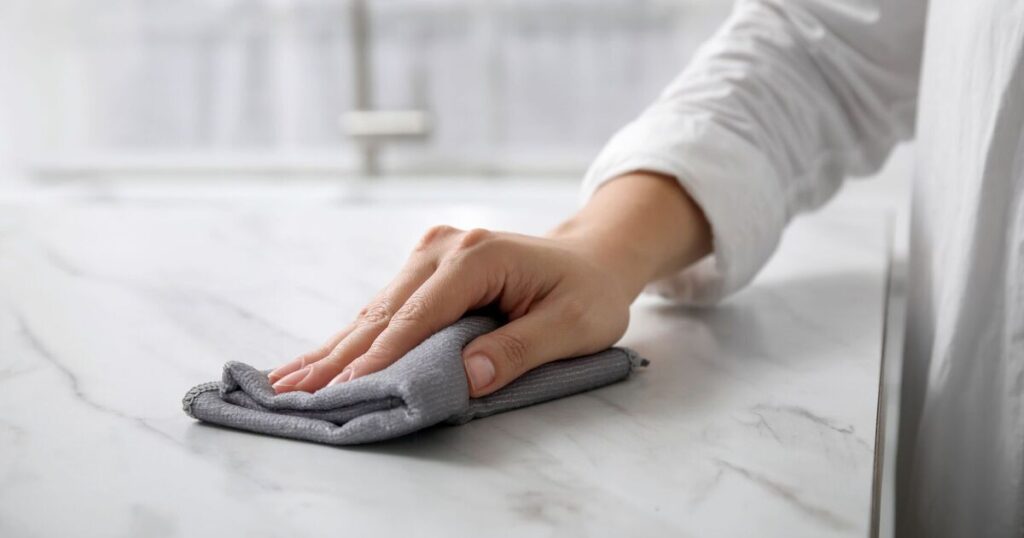
For years, vinegar has been a popular natural cleaning agent, praised for its eco-friendliness and cost-effectiveness. However, its acidic nature, while useful for breaking down certain types of grime, has limitations.
Vinegar is not effective against all types of bacteria and viruses, and its strong odour can be off-putting. It can also potentially damage certain surfaces, such as granite and marble, leading to dullness or etching over time.
But there is another ingredient that you can use the does the job better and does not damage your surfaces.
Hydrogen peroxide, often used as a disinfectant in medical settings, has emerged as a superior alternative for household cleaning.
According to recent research, hydrogen peroxide is highly effective at killing a broad spectrum of bacteria and viruses, making it a powerful tool in maintaining hygienic surfaces.
Unlike vinegar, hydrogen peroxide is also less likely to damage sensitive countertop materials.
Experts at the American Cleaning Institute, explained: “Hydrogen peroxide is a fantastic disinfectant that works by releasing oxygen molecules that break down bacteria and viruses.
“It’s safe for most surfaces, including natural stones, when used correctly, and it leaves no harmful residues.” It can omit a strong odour, so care must be taken to ensure the substance doesn’t get into the eyes.
It can also irritate the nose, skin, and throat – so people using it should wear gloves for extra protection.
How to Use hydrogen peroxide for cleaning
To clean countertops effectively with hydrogen peroxide, follow these simple steps:
- Dilution: For most surfaces, a 3% hydrogen peroxide solution is ideal. It can be used directly from the bottle or diluted with water if necessary.
- Application: Spray the solution directly onto the countertop. Allow it to sit for a few minutes to ensure it breaks down any pathogens effectively.
- Wipe Down: Use a clean cloth or sponge to wipe the surface. For tougher stains, a gentle scrub may be required.
- Rinse: Finish by rinsing the area with water and drying it with a clean towel.
Hydrogen peroxide is also non-toxic when used correctly, although it should be kept out of reach of children and pets.
Always test a small area first to ensure compatibility with your worktop material.
 Tops Top News Online Real News Portal
Tops Top News Online Real News Portal 





